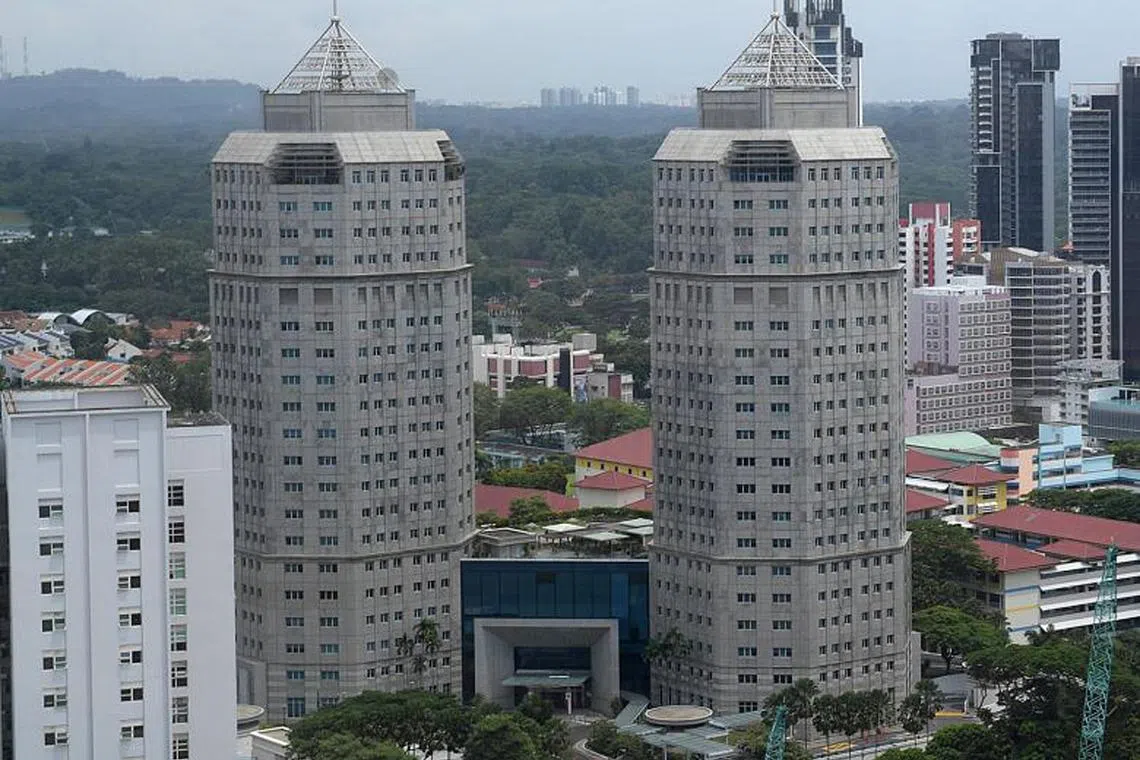5 S’pore citizens declared memberships in overseas political entities under foreign interference law
Sign up now: Get ST's newsletters delivered to your inbox

The foreign interference law requires that Singapore citizens involved in foreign political bodies before Feb 1, 2024, declare their involvement by March 1.
ST PHOTO: JAMIE KOH
SINGAPORE – Five Singapore citizens have declared their memberships in foreign legislatures or political organisations as at March 1, as required by the Republic’s foreign interference law.
Minister for Home Affairs and Law K. Shanmugam disclosed this in a written reply on April 2 to a parliamentary question by Progress Singapore Party Non-Constituency MP Leong Mun Wai.
Anyone applying to be a Singapore citizen or permanent resident (PR) is required to declare their membership in professional societies, clubs, associations and other organisations, Mr Shanmugam added. He did not provide more details about the five people nor which foreign organisations they are part of.
The Foreign Interference (Countermeasures) Act (Fica), a law that empowers the authorities here to deal with foreign interference in domestic politics, was passed in Parliament in October 2021.
The law requires that Singapore citizens involved in foreign political bodies before Feb 1, 2024, declare their involvement by March 1. Those who become members after Feb 1 have to declare their involvement within one month of joining.
On Feb 26, businessman Philip Chan Man Ping, 59, became the first person here to be officially designated a politically significant person.
Mr Chan was assessed to have shown susceptibility to being influenced by foreign actors, and willingness to advance their interests, MHA said on Feb 2 when it announced its intention to designate him under Fica.
In March 2023, Mr Chan had attended the annual session of China’s top political advisory body,
On April 2, Mr Shanmugam wrote in reply to another parliamentary question that Singapore citizens and PRs are not prohibited from becoming members of such foreign entities.
Workers’ Party MP Jamus Lim (Sengkang GRC) had asked whether Singapore citizens and PRs are permitted to be members of entities such as the CPPCC if they register with the authorities here and their activities are not directed towards a political end in Singapore.
The requirement for citizens to declare their memberships is for the Government to have oversight of those who are members of foreign legislatures or foreign political organisations, said Mr Shanmugam.
“(Singapore citizens) who join such bodies or are thinking of joining such bodies will need to be discerning as to whether their participation could potentially go against Singapore’s interests,” he added.
The Government is particularly mindful about foreign affiliations of individuals who are politically significant persons under Fica, said the minister.
The law classifies political parties, political office holders and MPs as defined politically significant persons. A person or group can become designated as politically significant if the authorities assess that their activities are directed towards a political end, and that it is in the public interest that countermeasures against foreign interference be applied.
“Fica allows the Registrar of Foreign and Political Disclosures to issue a directive to any politically significant person to end an arrangement with any foreign principal, including membership of any foreign entity,” said Mr Shanmugam.
“The registrar can do so if he is satisfied that the politically significant person is undertaking, has undertaken or is likely to undertake an activity on behalf of a foreign principal, and that it is in the public interest that such a directive be given.”
Professor Lim also asked whether the Government sets guidelines for the editorial policy of vernacular news media on guest writers, and whether public funding of SPH Media Trust will be tied to a criterion of not encouraging foreign interference.
Between April 2011 and May 2019, Mr Chan wrote around 30 articles for Chinese language newspaper Lianhe Zaobao, primarily in his capacity as president of the Kowloon Club.
Most of these articles were published as part of a regular column in Zaobao’s Crossroads section, where he was one of several guest contributors.
Minister for Communications and Information Josephine Teo said in a written reply that her ministry does not set the editorial policy for news media outlets.
Public funding for SPH Media is meant to support talent, technology and vernacular capabilities, she added.
The Government had, in February 2022, said it would provide up to $900 million in funding support to SPH Media Trust over five years.
The funding is tied to key performance indicators tracking SPH Media’s reach and engagement,
Mrs Teo said the Government has been consistent in safeguarding Singapore and Singaporeans from foreign interference in the country’s domestic affairs, including through the local media.
For instance, the Newspaper and Printing Presses Act prohibits SPH Media from receiving funding from foreign sources for any purpose without prior approval from the Government.



